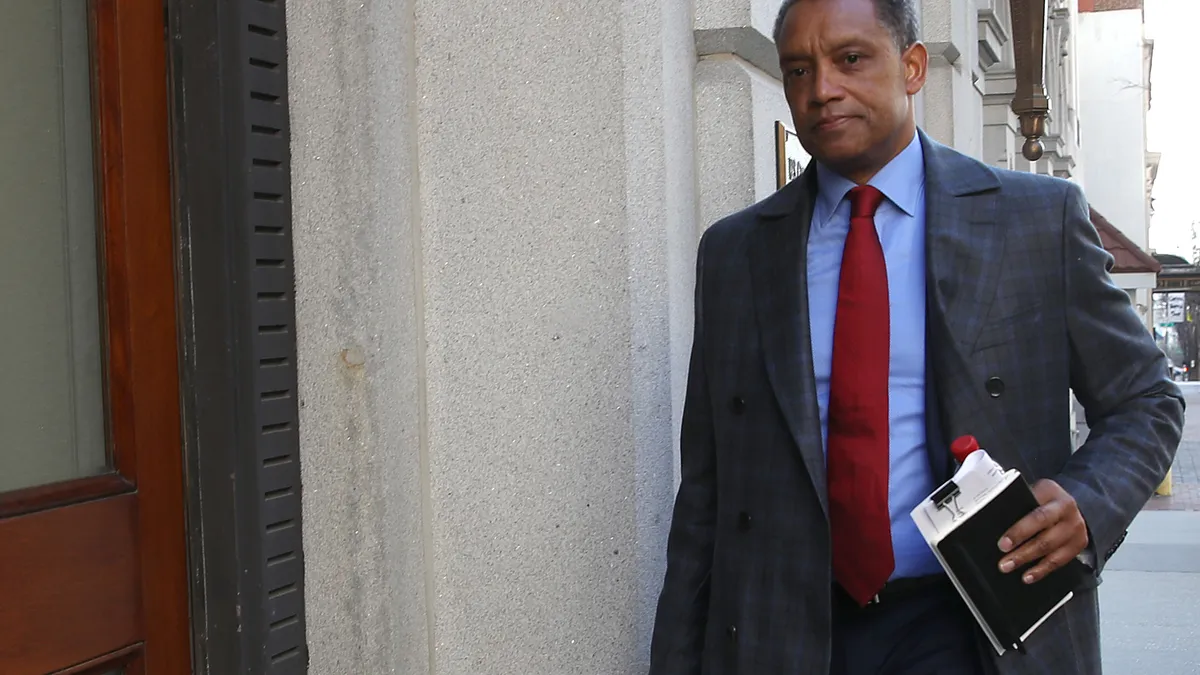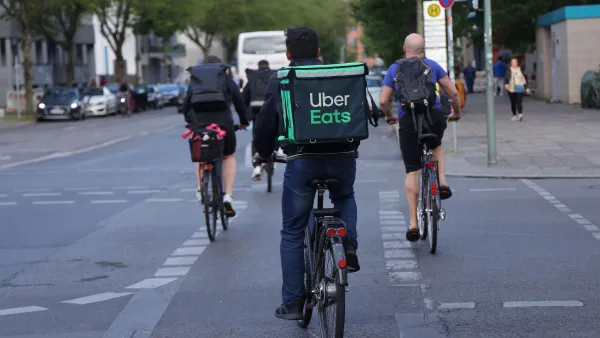Dive Brief:
- Attorney General Karl Racine filed a lawsuit against Grubhub in the Superior Court of the District of Columbia on Monday, seeking an injunction against an array of business practices Racine's office alleges are misleading or deceptive.
- The complaint alleges Grubhub offered delivery from over 1,000 Washington, D.C., restaurants without their consent, charged higher prices than restaurants and misrepresented the amount of fees charged to consumers.
- Grubhub denied violating D.C. laws in a statement emailed to Restaurant Dive, saying its terms of service addressed many of the District's allegations regarding fee notifications. Grubhub said the branded sites the company created for restaurants in the past were consistent with contracts the company signed with restaurants, and that it no longer provides this service.
Dive Insight:
Racine has sued other gig economy companies, including DoorDash and Instacart, over their tipping practices. Other major cities like Chicago have sued delivery giants over unauthorized restaurant listing and fee structures in the last year.
"Grubhub misled District residents and took advantage of local restaurants to boost its own profits, even as District consumers and small businesses struggled during the COVID-19 pandemic," Racine said in a press release. " Grubhub charged hidden fees and used bait-and-switch advertising tactics—which are illegal."
The complaint also alleges that Grubhub's "Supper for Support" promotion in the first months of the COVID-19 pandemic passed the cost of discounts on to restaurants by keeping its marketing and delivery charges the same while charging consumers a reduced price. Grubhub said its terms were disclosed to restaurants and that they could decide to participate or not in the promotion, which did not state or imply that restaurants were not financially obligated for discounts. Going forward, Grubhub plans to disclose when similar promotions are funded by the restaurant.
Grubhub maintains that its business practices aren't in breach of District delivery standards.
"Our practices have always complied with DC law, and in any event, many of the practices at issue have been discontinued. We will aggressively defend our business in court and look forward to continuing to serve DC restaurants and diners," a Grubhub spokesperson said.
The Restaurant Association of Metropolitan Washington supports the District's lawsuit, Andrew Kline, an attorney with the Veritas Law Firm and general counsel of RAMW, said in a press release.
"Although third party delivery services can be important partners of restaurants, they should not exploit either the public nor the businesses they serve with misleading statements and unfair trade practices," Kline said.
Major jurisdictions have begun tightening regulations on delivery aggregators since the pandemic increased delivery demand. New York City passed broad delivery worker protections and a 15% delivery fee cap in 2021. Texas passed a law that would bar delivery apps from adding restaurants without their consent in January. Chicago filed a lawsuit in August alleging fees charged by delivery companies constituted a bait and switch, similar to Racine's lawsuit against Grubhub.
Grubhub has fought back against municipal regulations, challenging a New York City data sharing law in December.















